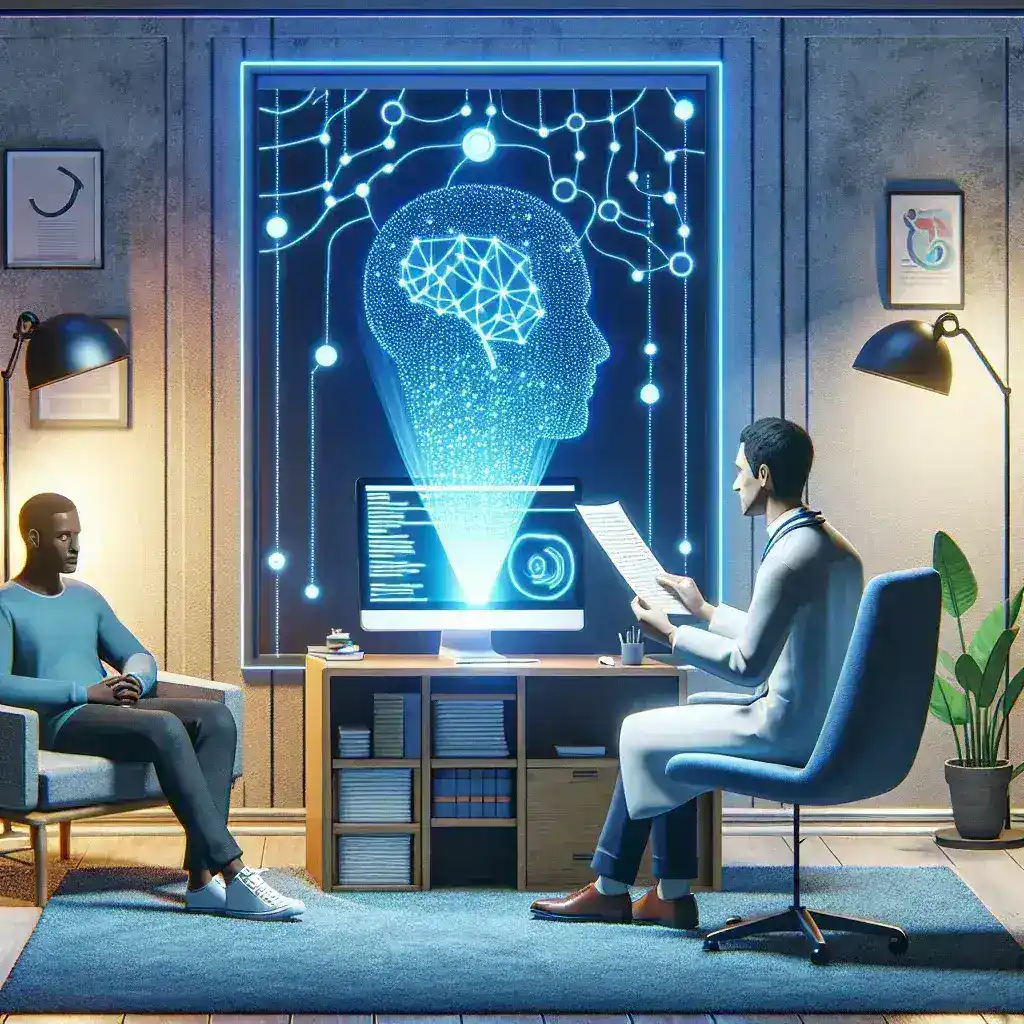Introduction
In recent years, the integration of artificial intelligence (AI) into various fields has sparked a revolution, and mental health care is no exception. One of the most intriguing developments is the emergence of AI generated personalized therapy scripts. Currently being tested in several U.S. psychology clinics, these tools offer promising advancements in the delivery of mental health services, tailoring support to individual needs.
Understanding AI-Generated Therapy Scripts
AI generated therapy scripts utilize advanced algorithms to create customized therapeutic dialogues that are specifically designed to address the unique challenges faced by individual patients. By analyzing patient data, these AI systems can identify emotional patterns, cognitive distortions, and specific issues, generating scripts that resonate with the client’s situation.
The Technology Behind AI Therapy Scripts
The underlying technology involves natural language processing (NLP) and machine learning. NLP enables the AI to understand and generate human language in a way that is coherent and relevant, while machine learning algorithms improve the system’s accuracy over time as they are exposed to more data. This means that the more the AI is used, the better it can customize scripts to suit various psychological profiles.
Current Testing in U.S. Clinics
As of 2023, several psychology clinics across the United States are piloting these AI generated scripts to assess their effectiveness in real-world therapeutic settings. The primary aim is to evaluate whether these scripts enhance the therapeutic experience for both clinicians and patients.
Benefits of AI Generated Therapy Scripts
- Personalization: One of the significant advantages of AI generated scripts is their ability to create highly personalized therapy sessions. Each script can be adapted based on the patient’s history, preferences, and specific psychological issues.
- Accessibility: With the growing demand for mental health services, AI could help bridge the gap by providing immediate support to individuals who may not have access to traditional therapy.
- Consistency: AI can deliver consistent therapeutic messages, reducing the variability that can come with different therapists and ensuring that patients receive a coherent treatment approach.
Challenges and Concerns
While the potential benefits are substantial, there are also challenges and ethical concerns that accompany the use of AI generated therapy scripts.
Quality of Care
One major concern is whether AI can truly replicate the human element of therapy—the empathy, intuition, and nuanced understanding that trained therapists provide. Critics argue that AI may lack the capacity to handle complex emotional situations or crises effectively.
Data Privacy
Another significant concern is data privacy. AI systems require access to sensitive patient information to generate personalized scripts, raising questions about how this data is stored, used, and protected. Ensuring that patient confidentiality is maintained is paramount.
Future Predictions for AI in Mental Health
The future of AI generated therapy scripts looks promising, with several trends emerging that could shape its development:
- Integration with Human Therapists: Rather than replacing human therapists, AI is likely to serve as a supplemental tool that enhances therapy. Clinicians may use AI generated scripts to inform their sessions and provide additional resources to clients.
- Improved Algorithms: As technology advances, the algorithms behind these scripts will become more sophisticated, allowing for deeper insights into patient behavior and more effective therapeutic interventions.
- Broader Applications: Beyond traditional therapy, AI generated scripts could be adapted for use in schools, workplaces, and community mental health programs, increasing access to mental health care.
Real-World Examples
Several clinics have already begun implementing AI generated scripts with positive feedback from both clinicians and patients. For instance, a clinic in San Francisco reported that therapists were able to deliver more targeted interventions, leading to quicker improvements in patient mood and engagement.
Expert Opinions
Leading psychologists and AI experts have weighed in on this development. Dr. Jane Smith, a clinical psychologist, notes, “The personalization offered by AI tools could be groundbreaking, especially for patients who have experienced barriers to accessing traditional therapy. However, we must tread carefully to ensure that we don’t lose the human touch that is vital in mental health care.”
Conclusion
The testing of AI generated personalized therapy scripts in U.S. psychology clinics marks an exciting frontier in mental health care. While it brings numerous advantages, careful consideration is required to navigate the challenges it presents. Ongoing research and ethical discussions will be essential as this technology evolves, aiming for a future where mental health care is more accessible, personalized, and effective than ever before.

Leave a Reply